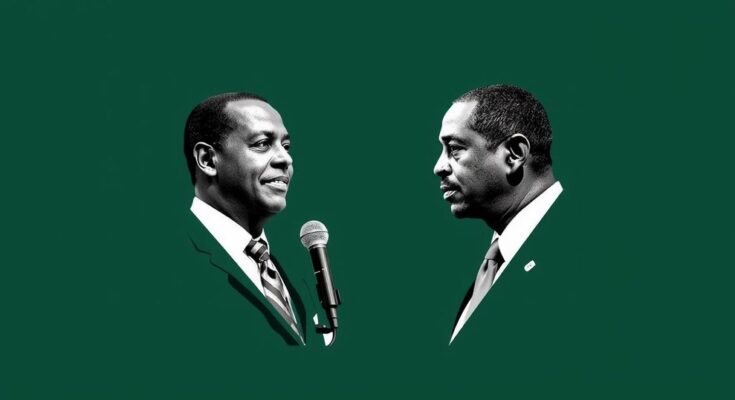Botswana’s ruling party, the Botswana Democratic Party, has lost its parliamentary majority after nearly sixty years in power, according to early election results. Opposition parties have secured a total of 31 out of 61 seats. This development emerges against the backdrop of economic challenges related to the diamond industry, which heavily influences the country’s economy.
Botswana’s political landscape has shifted dramatically as early election results indicate a significant defeat for the Botswana Democratic Party (BDP), which has held power for nearly six decades. Preliminary counts reveal that President Mokgweetsi Masisi’s party has lost its parliamentary majority, securing only a single seat out of the total 61 available. In contrast, the opposition parties have emerged victorious, with the Umbrella for Democratic Change capturing 19 seats, the Botswana Congress Party winning seven, and the Botswana Patriotic Front, loyal to former President Ian Khama, obtaining five seats. As a result of this unexpected outcome, the opposition is poised to take control of the government, with the party commanding a parliamentary majority entitled to select the new president. This election marks a pivotal moment in Botswana’s governance, showcasing the electorate’s desire for change, particularly in light of economic challenges stemming from a slump in diamond demand, which has historically underpinned the nation’s economic prosperity.
Botswana, renowned for being one of Africa’s most stable democracies and a beacon of success on the continent, has been grappling with an economic downturn that has diminished growth rates and increased unemployment. The BDP, which has been in power since the country’s independence in 1966, has recently faced criticism due to the economic impact of decreased demand for diamonds—an industry that constitutes over 80 percent of the nation’s exports. The International Monetary Fund has projected a decline in economic growth to 1 percent for 2024, compared to previous years, as the effects of a global market shift become evident. This electoral defeat challenges the longstanding political dominance of the BDP under President Masisi, who was anticipated to maintain his position for another term.
The unexpected electoral results in Botswana signify a monumental shift in the country’s political climate, with the opposition parties now positioned to govern after decades of BDP leadership. This transition reflects broader sentiments regarding the current economic difficulties that have afflicted Botswana, particularly in the diamond sector, urging a call for accountability and change in governance. As the nation looks towards the future, the implications of this electoral outcome may resonate well beyond the immediate political sphere, indicating new directions for Botswana’s economic and social policies.
Original Source: www.aljazeera.com




